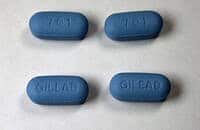Annals Internal Medicine, Author Interviews, Esophageal, Gastrointestinal Disease / 20.10.2020
Time for a Change in Endoscopic Modality of GI Cancer Screening
MedicalResearch.com Interview with:
加藤元嗣 Mototsugu KATO MD PhD
院長 独立行政法人国立病院機構函館病院
Director, National Hospital Organization
Hakodate National Hospita
MedicalResearch.com: What is the background for this study?
Response: The primary goal of upper gastrointestinal (GI) endoscopic examination is to detect neoplastic lesions in the pharynx, esophagus, and stomach. However, early-stage lesions may frequently be overlooked by conventional white light endoscopy. Since the recent launch of image-enhanced endoscopy, many studies have evaluated its efficacy in diagnosing upper GI neoplasms as well. Linked color imaging (LCI )emphasizes the difference in color to make it easier to detect neoplastic lesions. The aim of this trial is to compare the performance of LCI with white light imaging in detecting upper GI tract neoplastic lesions.
(more…)




























